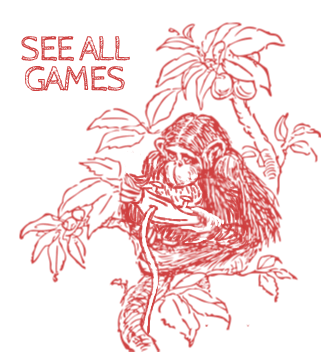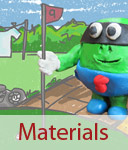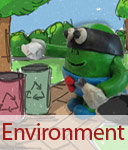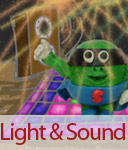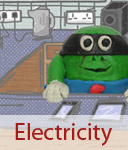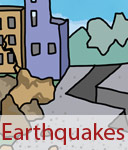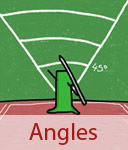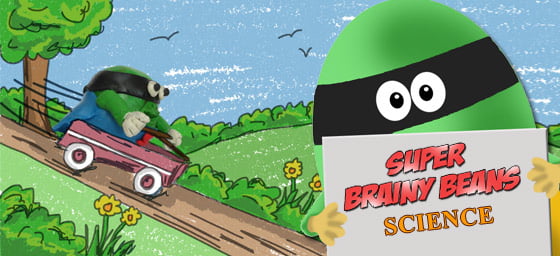
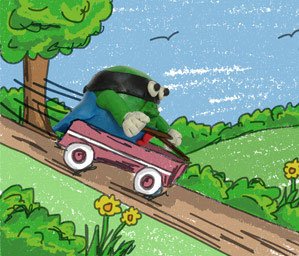
Forces
Year 3 & 4
Forces Year 3 & 4 KS2 learning at Primary School. Homework help with Forces and Motion. Learn about what a force is and magnetic forces for Key Stage 2.
Pick a level
What is friction?
Friction is the force between two surfaces that are touching and moving against each other. Friction works in the opposite direction to movement and always slows objects down.
For example, there is friction between a car and the road. The rough surface of the road creates friction, which helps the car grip the road and stop safely. Without friction, cars would skid and be very hard to control.
Rough and smooth surfaces
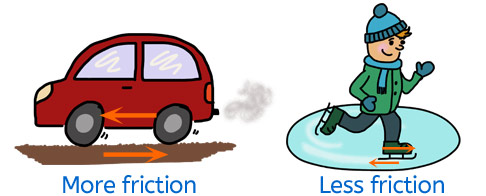
The type of surface makes a big difference to how things move. Smooth surfaces let objects move more freely, while rough surfaces make it harder for them to move. This is because of the amount of friction between the surfaces.
Rough, bumpy surfaces create a lot of friction. There is a lot of friction between a car and a bumpy road. The bumps increase the friction and make it easier for the car to slow down and stop.
Smooth, flat surfaces create very little friction. For example, there is very little friction between ice skates and ice. The smooth surface makes it easy to slide and hard to stop, which is great for skating but can be dangerous if you are not careful.
Using friction to help us
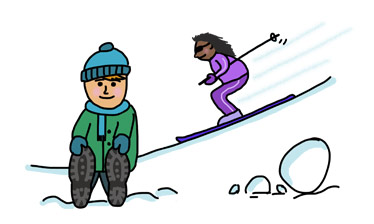 Because we understand friction, we can use it to our advantage. We add grip to the soles of shoes to stop us from slipping on smooth floors. Tyres have treads to increase friction and help cars stop safely.
Because we understand friction, we can use it to our advantage. We add grip to the soles of shoes to stop us from slipping on smooth floors. Tyres have treads to increase friction and help cars stop safely.
But sometimes we want less friction. Skis are made very smooth so they can slide quickly over snow. Slides in playgrounds are smooth so children can move down them easily.
Friction can make heat
When two surfaces rub together, friction can produce heat. This is because energy is released as the surfaces move against each other.
Creating heat
- Rub your hands together quickly.
- Can you feel them getting warm? The heat is caused by friction between your two hands.
This is also how a match works. The friction between the match and the rough strip on the matchbox creates heat and lights the match.
*Do not try this without an adult.
Contact and non-contact forces
Forces can be grouped into two main types: contact forces and non-contact forces. This helps us understand how different forces work in different ways.
Contact Forces
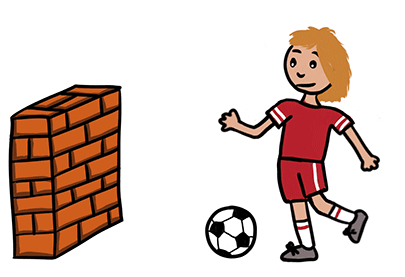
Contact forces only work when two objects are touching. The force is passed directly from one object to the other through contact. Pushing, pulling, kicking and lifting are all contact forces.
Imagine a football. When you kick it, your foot touches the ball and uses a force to make it move or change direction. The ball will not change direction on its own unless another force acts on it. It might hit a wall, the ground or another player. Each time it touches something, a contact force is used.
Now imagine dropping a book. The book falls because of gravity, but it will not stop falling until it hits the floor. The floor uses a contact force to stop the book. Without contact, the book would keep moving.
Friction is also a contact force. It happens when two surfaces touch and rub together, and it slows objects down.
Non-Contact Forces
 Non-contact forces do not need objects to be touching. They can work at a distance, which means the objects can affect each other without touching. The most common non-contact forces are gravity and magnetism.
Non-contact forces do not need objects to be touching. They can work at a distance, which means the objects can affect each other without touching. The most common non-contact forces are gravity and magnetism.
Gravity pulls objects toward the Earth even when they are not touching it. This is why things fall when you drop them. Magnetism can pull some objects toward a magnet without touching them. You might see a paperclip jump up to a magnet – that is a non-contact force in action.
Non-contact forces are sometimes called invisible forces because we cannot see them, but we can see what they do.
Magnets
Magnetic forces are forces created by a magnet. Magnets can pull (attract) or push (repel) certain objects. One special thing about magnets is that they do not need to touch an object to affect it. They can work at a distance, which makes magnetism a non-contact force.
Magnets are used in many everyday items such as fridge doors, bag clasps, toys, speakers and cupboards. They help hold things together and make objects work properly.
Attract or repel?
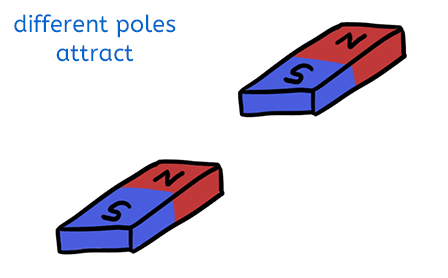 Magnetic forces can pull objects towards a magnet or push objects away.
Magnetic forces can pull objects towards a magnet or push objects away.
- Attract means to pull together.
- Repel means to push apart.
This pushing and pulling is called magnetism.
Every magnet has two ends called poles. These are the North pole and the South pole. The poles are the parts of the magnet where the magnetic force is strongest.
When different poles (North and South) face each other, they attract and pull together. When the same poles (North–North or South–South) face each other, they repel and push apart.
Before testing magnets, you can predict what you think will happen. This is what scientists do before carrying out an investigation.
Even if a magnet breaks, each piece will still have a North pole and a South pole. This shows that magnetism is part of the whole magnet.
Magnetic or Not?
Not all materials are magnetic. Magnets only attract some metals, such as iron and steel. Materials like wood, plastic, glass, rubber and paper are not magnetic.
Testing different objects helps us learn which materials are magnetic and which are not. This is how scientists find out more about the world around them.

Magnet metals
- Find a magnet and test different objects around your home to see if they are magnetic. You could try paperclips, coins, kitchen foil, screws and nails.
- Before you test, predict which ones you think will be magnetic and which will not.
- Then test your ideas and see if you were right!
Paperclip chain
- Hold a magnet and see if you can hang a paper clip to it.
- Add another paperclip to the last one.
- How many can you add to the chain?
The magnet will produce a pull to hold several paperclips. The stronger the magnet the more you will be able to hold. A weak magnet will hold less.
 Magnetic Forces
Magnetic ForcesWhen two magnets are close, they create pushing or pulling forces on one another. Watch the video to find out about North & South poles




